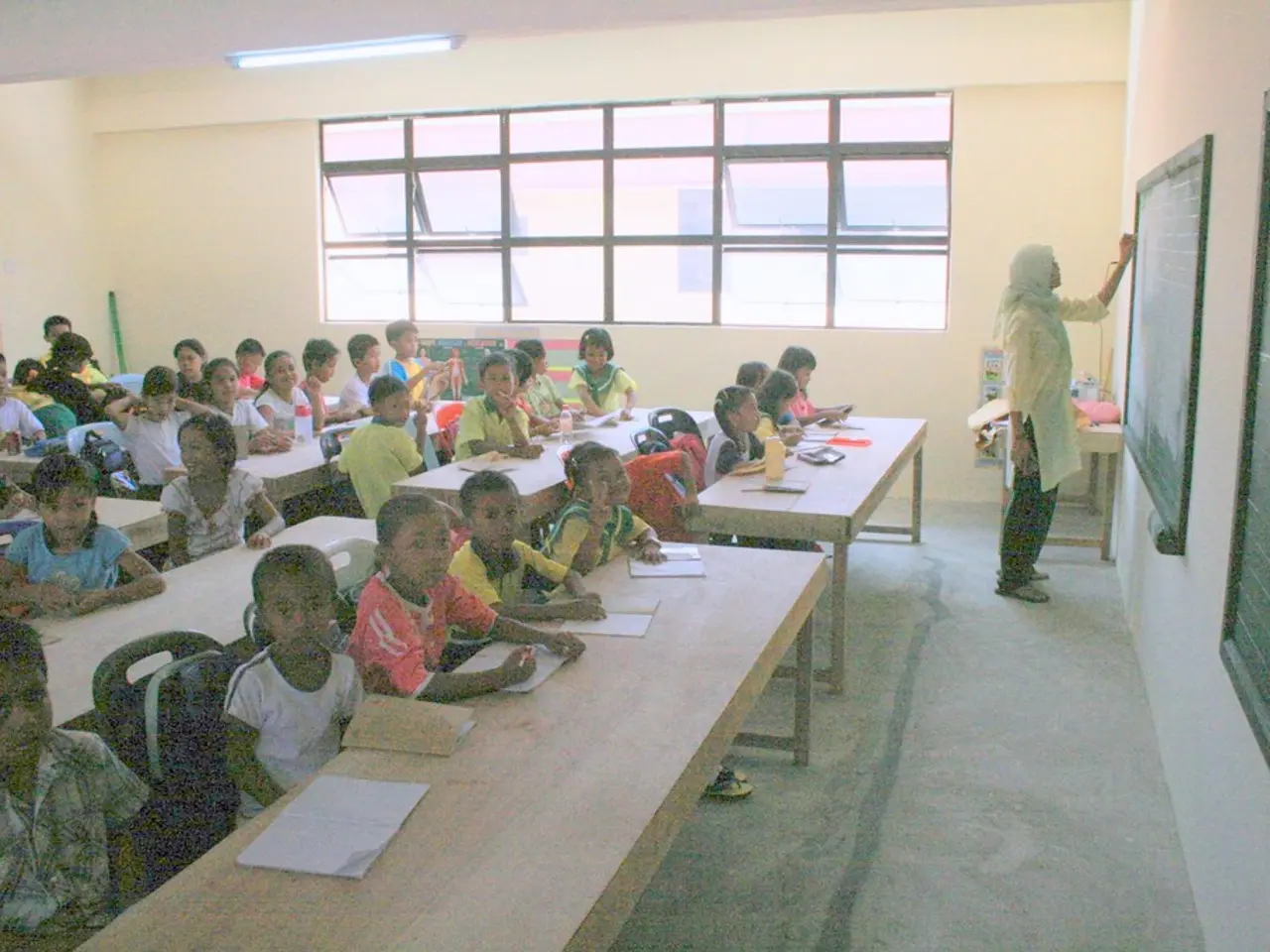The True Emotions of Educators Towards the Soaring Presence of Artificial Intelligence in Primary to High School Education
The use of artificial intelligence (AI) in schools is a hot topic that has garnered significant attention from educators and policymakers alike. With the advent of technology, AI is being increasingly integrated into the K-12 education landscape, serving various purposes from personalised learning to assisting with non-teaching tasks.
In an informal Education Week LinkedIn poll, 87% of respondents predicted that AI would indeed impact the classroom, while only 7% held the view that it would not. This suggests a widespread acceptance of AI in education, with many educators viewing it as an inevitable part of the future.
However, concerns about AI's potential impact on students' critical thinking skills and their ability to experiment and learn are not unfounded. Angel R., an educator, believes that while AI can help personalise learning and assist with administrative tasks, there is a risk of bias in AI algorithms that could potentially undermine the learning experience.
Kristin M., another educator, shares a similar view, emphasising the importance of human oversight and the need for students to develop critical thinking skills. She sees AI as a tool that can enhance teaching and learning, but cautions against relying too heavily on it, fearing that it could potentially replace human interaction and creativity in the classroom.
Supporting professional development on AI use is a top priority for state education technology officials. In a recent survey, 40% of respondents reported that their states had released AI guidance. Yet, as the new school year begins, many schools do not have policies in place to guide AI use, highlighting the need for continued efforts to ensure responsible integration of AI in education.
Measures to support AI adoption vary across countries. In Germany, for instance, Bremen introduced the AI chatbot "Telli" to all public schools in June 2025, making it the first federal state to do so. Bavaria, on the other hand, has implemented the BayernCloud Schule as a statewide platform integrating digital tools and communication for schools since August 2025. These measures include providing secure communication platforms, AI training for staff to meet legal and competence requirements effective from 2025, and ongoing political and technical efforts to develop AI infrastructure and services suitable for educational institutions.
David P., an educator, expresses concern about AI's potential to replace human interaction and creativity in the classroom. As the use of AI in education continues to grow, striking a balance between leveraging its benefits and preserving the human touch in education will be key.
In conclusion, while AI is being increasingly used in schools, the debate surrounding its impact on education and the need for responsible integration continues. As educators, policymakers, and technology officials work together, finding this balance will be crucial in ensuring that AI serves as a tool to enhance, not replace, the educational experience.
Read also:
- Experiencing Life's Variety Firsthand: Gaining Insights from Life's Broad Spectrum of Experiences
- Premium Organic Avocado Crib Mattress: Top Pick for Eco-Conscious Parents
- Remains the question: Does low-poly game art retain its relevance in the current gaming landscape?
- AI-Powered Scamming in Banking Deception: An Overview








